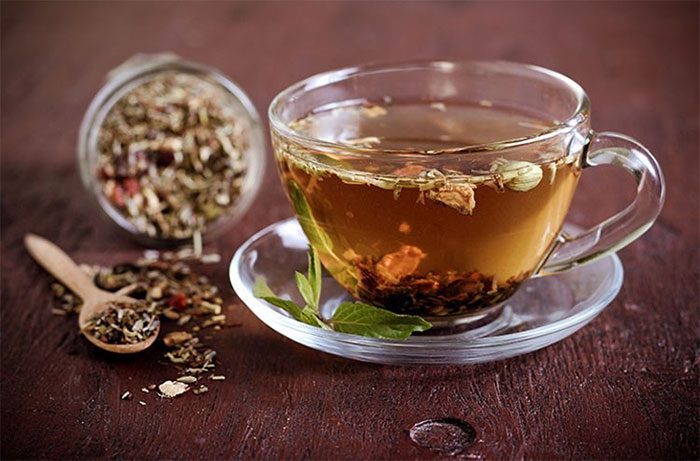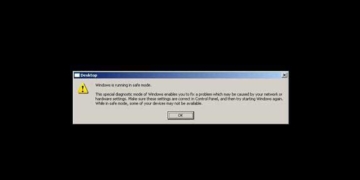It is advisable to drink plenty of warm water and herbal tea to clear the nose and thin mucus, making it easier to blow your nose; steam inhalation or warm baths, and gargling with salt water can also help.
Dr. Huỳnh Tấn Vũ, Head of the Day Treatment Unit at University of Medicine and Pharmacy Hospital, Facility 3, states that Covid-19 and the common cold both irritate the nasal and sinus mucosa, leading to increased secretion of clear mucus. This mucus serves to trap bacteria, viruses, or allergens and expel them from the nasal cavities.
Nasal discharge is a normal physiological phenomenon that protects the body, although it can be uncomfortable for patients. Typically, this symptom resolves on its own within 7 days when infected with Covid-19, the doctor notes, while also providing guidance on several methods to alleviate runny and stuffy noses.
Drink Plenty of Water
Runny nose (rhinorrhea) often accompanies nasal congestion, so it is essential to drink plenty of water to prevent dehydration. Water helps to thin the mucus in the nose, making it easier to blow your nose. When the body is dehydrated, mucus becomes thicker and stickier, worsening nasal congestion. It is best to drink plain water, warm water, or fruit juices, and avoid dehydrating beverages like coffee or alcohol.
Drink Herbal Tea

Herbal ingredients containing essential oils can help clear the nose, warm, disinfect…
Warm herbal tea, with its steam, can help clear the nasal passages and make breathing easier. The herbal components containing essential oils can mildly decongest, warm, disinfect, reduce coughing, and soothe a sore throat. It is advisable to use teas that include anti-inflammatory and antihistamine herbs, such as chamomile, ginger, and peppermint.
Steam Inhalation or Warm Baths
Steam inhalation with hot water can reduce nasal discharge and clear the airways, making breathing easier and providing relaxation. Inhaling steam twice a day is sufficient to warm the nose, reduce swelling, and disinfect. Excessive or overly hot steam can damage the mucosa, causing worse congestion.
When steaming your face, maintain a distance of about 30 cm between your face and the water to avoid skin burns, and take deep breaths to inhale the steam into your nose, then blow your nose to expel mucus. Adding a few drops of essential oils like eucalyptus, peppermint, rosemary, cinnamon, lemongrass, or grapefruit, or mentholated oil to the steam water can enhance effectiveness.
Bathing in warm water, with the warm steam, helps to thin the mucus, making it easier to blow your nose.
Gargle with Warm Salt Water
Gargling with warm salt water helps to thin the phlegm and mucus accumulated in the throat and nasal cavity, making it easier to expel. This method also cleanses the throat and removes bacteria.
Proper Nutrition
Ensure adequate intake of essential nutrients to boost the body’s immunity, such as zinc, vitamins A, C, and omega-3 fatty acids, which enhance resistance and the ability to fight off disease-causing bacteria, preventing and reducing nasal discharge.
Consuming spicy, hot foods can increase mucus production and reduce nasal congestion, such as chili peppers, wasabi, and ginger. The capsaicin in chili can temporarily dilate the nasal muscles, making it easier to breathe. However, once you stop consuming spicy foods, nasal congestion may return.
Use Medication When Nasal Discharge and Congestion Cause Significant Discomfort
Typically, after 5-7 days, the symptoms of nasal congestion and discharge will lessen and gradually resolve. Severe conditions may lead to difficulty breathing and sleeping, requiring additional medication as advised by healthcare professionals, such as vasoconstrictors.
Vasoconstrictor nasal drops are used to relieve symptoms and reduce congestion in cases of acute or chronic rhinitis, sinusitis, colds, flu, or allergies (available as nasal drops or sprays). These medications provide relief from nasal congestion within 10 minutes and last approximately 2-6 hours. They should not be used for more than 7 days and should be consulted with a doctor.
Rinse the nose with saline solution. Inhale essential oils or mentholated oil to warm the nasal passages, and sleep with your head elevated. Strong-pressure nasal sprays can damage the mucosa, causing nosebleeds and increased congestion.
Massage the sinus areas and forehead to warm these regions and clear the nose. This can be done by using the side of your index fingers to rub both sides of the nostrils; massage the face from the bottom up and from the inside out; and rub the forehead horizontally with the palms. Applying a warm compress to the forehead and crown of the head using a warm towel or a heated herbal compress will help clear the nose and reduce nasal discharge.



















































